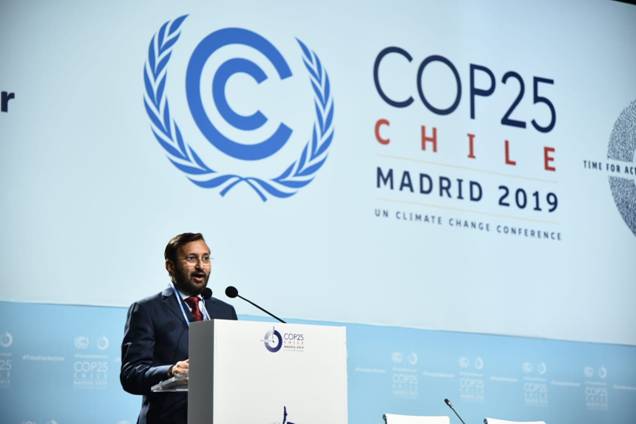
India has cut emissions intensity by 21% and is on course to meet the target of 35% emissions reduction in line with the Paris Agreement, minister for environment, forest and climate change Prakash Javadekar told the 25th session of the Conference of Parties under the UN framework convention of climate change at Madrid on Tuesday.
India has already achieved 83 GW of renewable energy and Prime Minister Modi has raised the target for clean energy from 175 GW promised under the Paris Agreement to 450 GW at the UN Climate Action Summit. The developed nations which promised $1 trillion dollar for the causes are yet to contribute 2% of the amount. These nations benefited from carbon emissions and they must repay, he said.
ALSO READ: Climate change: India lost $37.8 billion in extreme weather events in 2018: Study
“Climate change is real. The world recognised it and adopted a comprehensive agreement in Paris. Let us concentrate on implementation of Paris Agreement and not digress,” he told the conference.
“Only 6 countries are on track to meet their NDCs announced in Paris. We are leading the pack,” he said.
Javadekar said the country has put a carbon tax on coal production at $6 per tonne, adding that all 36 parties in Parliament supported the move. The minister said India tested a commercial flight on 100% biofuel and has set a target of blending of 20% ethanol in petrol by 2030. He highlighted the fact that the country leapfrogged from Bharat IV to Bharat VI for vehicle emission norms.
ALSO READ: Income tax rates: FM Nirmala Sitharaman hints at cuts, but there is hardly any room
Indian homes have fitted 360 million LED bulbs and 10 million streetlights have been replaced with LED bulbs. There is also a strong push for e-vehicles through policy interventions and incentives. The government has also managed to provide 80 million LPG connections, he told the conference.
India has promised to create additional carbon sinks of 2.5-3 billion tonnes of carbon equivalent through expanding the green cover. The country managed to increase its green cover by 15,000 sq km in the last five years, he said.
